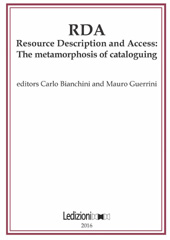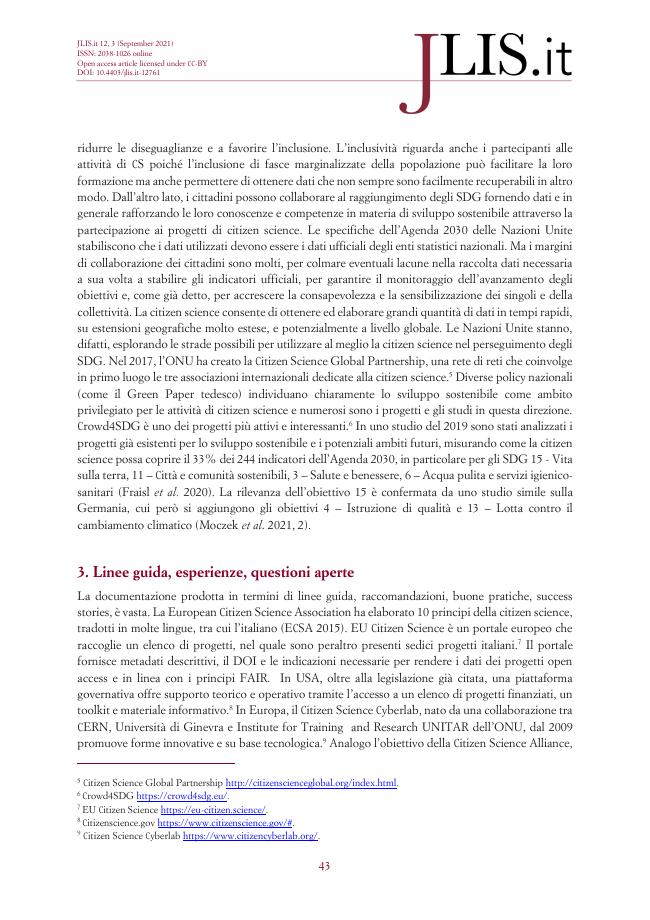Citizen science : one of the eight pillars of open science identified by the European Union
P. 33-52
Although it is not a new phenomenon, citizen science is a form of collaborative research whose importance has grown in recent years. There is no single definition of citizen science and although this is the prevailing expression, activities are often referred to by other terms. However, the various terms used emphasize the key element, which is the voluntary participation of non-expert citizens in scientific research. Citizen science encompasses a wide range of activities and practices that can cover the entire life cycle of a research, from data collection to publication of results, and even evaluation. The first part of the article briefly traces the history of citizen science, highlighting the implications of the different facets through which it is defined.
Then, it gives an overview of the state of the art, the initiatives, guidelines and good practices, the open issues, and the most representative institutions and organizations. A series of data are also provided regarding its dissemination, and reflections on the impact of this form of research on the scientific community and society, as well as on specific aspects related to open science and sustainable development. Finally, the article focuses on the role of university libraries and public libraries for citizen science. [Publisher's Text]
-
Artículos del mismo número (disponibles individualmente)
-
Información
Código DOI: 10.4403/jlis.it-12761
ISSN: 2038-1026
KEYWORDS
- Citizen science; Citizen humanities; Open science; Open access; Scholarly communication; Research evaluation; Sustainable development; Academic libraries; Public libraries



